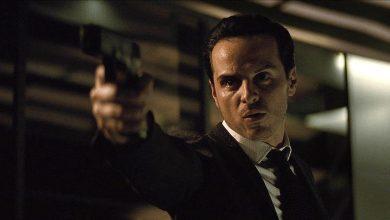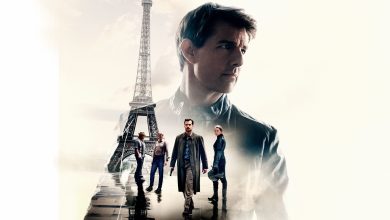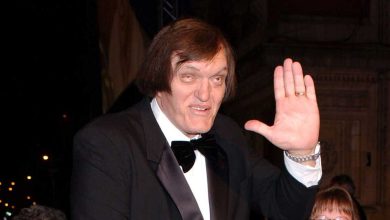How many James Bond movies was Walter Gotell?
The Complete Guide to Walter Gotell's Role in James Bond Movies
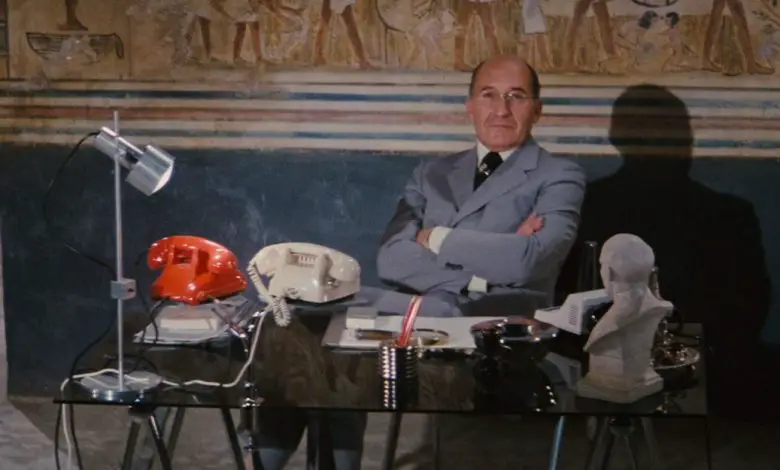
The world of James Bond is filled with memorable characters that have left an indelible mark on popular culture. One such character is General Gogol, a nuanced figure portrayed with charisma and gravitas by the late German actor, Walter Gotell. This article delves into the contributions of Gotell to the James Bond franchise, specifically focusing on his portrayal of General Gogol. From his first appearance in “The Spy Who Loved Me” in 1977 to his final performance in “The Living Daylights” in 1987, Gotell’s portrayal of the fictional head of the KGB became an iconic part of the Bond series.
Gotell’s portrayal of Gogol not only contributed to the richness of the Bond universe but also helped shape the way the series depicted the geopolitics of the Cold War era. Through an exploration of Gotell’s performances, career, and influence, we aim to provide a comprehensive understanding of his role in the James Bond series.
Walter Gotell was a German actor best known for his role as General Gogol in several James Bond films. Here is a brief biography and filmography of Walter Gotell:
Biography of Walter Gotell:
Early Life: Walter William Gotell was born on March 15, 1924, in Bonn, Germany. Growing up in Germany, he developed an interest in the performing arts from a young age. However, the tumultuous events of World War II would soon shape his life in unexpected ways.
World War II and Postwar Years: During World War II, Gotell served in the German army. After the war, he found himself in a displaced persons camp in Europe. It was during this period that he decided to pursue a career in acting. He moved to England, where he began his journey in the world of entertainment.
Acting Career: Walter Gotell’s acting career took off in the 1950s, with appearances in various British films and television shows. He often played character roles and built a reputation as a versatile actor.
One of his most notable and enduring roles was that of General Anatol Gogol in the James Bond film series. He first portrayed Gogol in “The Spy Who Loved Me” (1977) and continued to reprise the character in several subsequent Bond films, becoming an integral part of the franchise. His portrayal of the KGB General added depth and intrigue to the Bond series.
In addition to his work in James Bond films, Walter Gotell appeared in a range of other movies, including “The Guns of Navarone” (1961), “The Lion in Winter” (1968), and “The Sea Wolves” (1980), among others. He also made guest appearances on television series such as “Doctor Who” and “The Saint.”
Personal Life: Walter Gotell kept his personal life relatively private. He was known for his dedication to his craft and his professionalism as an actor. He was respected by his peers in the entertainment industry for his talent and work ethic.
Legacy: Walter Gotell’s legacy in the world of film and television is primarily tied to his memorable portrayal of General Anatol Gogol in the James Bond series. His contributions to these iconic movies made him a beloved figure among Bond fans worldwide.
Later Years and Passing: In his later years, Walter Gotell continued to work in the entertainment industry. Sadly, he passed away on May 5, 1997, in London, England, leaving behind a body of work that continues to be celebrated by fans and film enthusiasts.
How Many James Bond Movies was Walter Gotell in?
Walter Gotell, a distinguished British actor, is best known for his recurring role as General Gogol in the James Bond film series. Born on 15 March 1924 in Bonn, Germany, Gotell began his acting career in the late 1940s and went on to become a familiar face in both film and television over the decades. His stern demeanor and thick accent made him a sought-after character actor, particularly for roles requiring a menacing or authoritative figure.
Gotell’s involvement in the James Bond series spans several films. He first appeared in a minor role in “From Russia with Love” (1963) as Morzeny. However, he is most remembered for his portrayal of General Anatol Gogol, the head of the KGB, starting from “The Spy Who Loved Me” (1977) and continuing in six more films until “The Living Daylights” (1987). Therefore, Gotell appeared in a total of seven James Bond films.
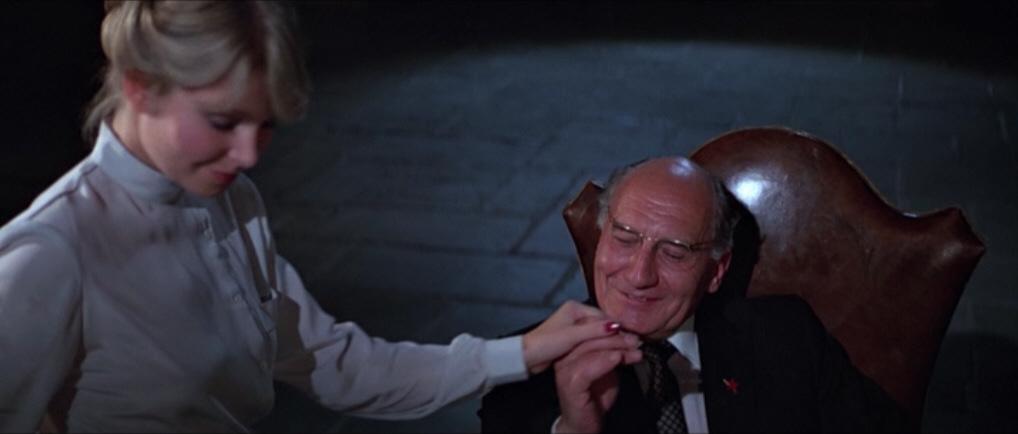
Walter Gotell’s Filmography :
- “A Matter of Life and Death” (1946) – Russian Soldier (Uncredited)
- “The Red Shoes” (1948) – Man (Uncredited)
- “High Treason” (1951) – Air Traffic Controller (Uncredited)
- “Assignment Redhead” (1956) – Captain
- “The Good Die Young” (1954) – Detective Inspector
- “Hell Drivers” (1957) – Maxie
- “The League of Gentlemen” (1960) – Major Race
- “The Day the Earth Caught Fire” (1961) – Hotel Manager
- “The Guns of Navarone” (1961) – Muesel
- “Tomorrow at Ten” (1962) – Inspector Blake
- “Dr. Syn, Alias the Scarecrow” (1963) – Revenue Officer
- “Hot Enough for June” (1964) – Ivanovitch
- “The High Bright Sun” (1964) – General Tsiros
- “The Heroes of Telemark” (1965) – Major Frick
- “Triple Cross” (1966) – Jauffret
- “You Only Live Twice” (1967) – Morzeny
- “The Lion in Winter” (1968) – William Marshal
- “Inspector Clouseau” (1968) – Hotel Concierge
- “On Her Majesty’s Secret Service” (1969) – Morzeny
- “The Executioner” (1970) – Valinov
- “Diamonds Are Forever” (1971) – Morzeny
- “Embassy” (1972) – Col. Midwinter
- “The National Health” (1973) – Patient
- “The Spy Who Loved Me” (1977) – General Anatol Gogol
- “Force 10 from Navarone” (1978) – Major Petrovitch
- “Moonraker” (1979) – General Anatol Gogol
- “The Sea Wolves” (1980) – Adm. Brindsen
- “For Your Eyes Only” (1981) – General Anatol Gogol
- “Octopussy” (1983) – General Anatol Gogol
- “The Living Daylights” (1987) – General Anatol Gogol
- “Licence to Kill” (1989) – General Anatol Gogol
The Role and Influence of General Gogol
General Gogol, portrayed by Gotell, served as a symbol of the changing times in the Bond series. As the head of the KGB, he was technically an antagonist due to the political climate of the Cold War during the time the films were produced. However, Gogol was often portrayed as a friendly rival to Bond rather than a true villain, reflecting the increasing complexity of international relations.
Gogol’s character was known for his witty one-liners, pragmatic approach, and occasional cooperation with Bond, showcasing a shift from the traditional ‘us versus them’ narrative common in earlier spy films. Gogol’s role, though not as prominent as Bond’s, left a significant imprint on the series, offering a nuanced portrayal of Cold War dynamics and humanizing the ‘other side.’
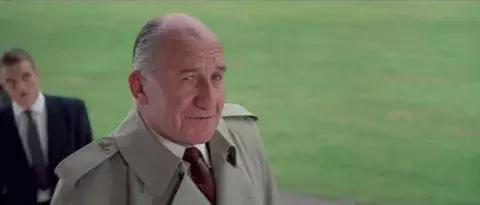
Remembering Walter Gotell
Gotell’s performance as General Gogol left a lasting impact on the James Bond franchise. His portrayal helped redefine the series’ approach to its characters and themes, reflecting the evolving political landscape of the time. Gotell’s contributions to the Bond series, along with his extensive body of work in film and television, solidify his legacy as a noteworthy figure in the world of entertainment.
Frequently Asked Questions
1. What was Walter Gotell’s early life like before his acting career?
Walter Gotell was born in Bonn, Germany, on March 15, 1924, to parents of Polish descent. He moved to Britain with his family at a young age, escaping the political turmoil in Germany during the 1930s. The move to Britain would eventually lead to Gotell’s interest in acting, a passion that he would carry throughout his life.
As a child, Gotell attended the Leyton County High School for Boys. He was drawn towards theatre and acting from an early age, often participating in school plays and local theatre productions. His performances during these early years showcased his talent and set the stage for his future career in acting.
After finishing school, Gotell served in the Royal Air Force during World War II. His time in the military, while a departure from his artistic pursuits, undoubtedly influenced his later portrayal of authoritative figures in his acting career, including his iconic role as General Gogol in the James Bond series.
2. How did Walter Gotell start his acting career?
Walter Gotell’s acting career began in the late 1940s, a time when the film industry was transitioning from the wartime era to a period of cinematic innovation and exploration. His first film role came in 1942, in a war movie called “The Next of Kin.” His portrayal of a German officer showcased his ability to embody stern and authoritative characters, a skill that would become a defining feature of his acting career.
Over the next decade, Gotell continued to establish himself as a prominent character actor. He appeared in a variety of roles across multiple genres, from dramas like “The African Queen” (1951) to war films such as “The Guns of Navarone” (1961). His consistent performances and unique screen presence made him a reliable figure in the film industry.
Gotell’s breakthrough role, however, would come in the form of General Gogol in the James Bond series. This role catapulted him to international fame and solidified his place as one of the most recognizable character actors of his time.
3. How did Walter Gotell get the role of General Gogol?
Gotell’s casting as General Gogol came about through a combination of his previous work and the need for a recurring character to represent the Soviet Union in the James Bond series. Gotell had already appeared in a Bond film, “From Russia with Love,” in 1963, where he played the character Morzeny. His performance in this film left an impression on the producers.
When the character of General Gogol was introduced in “The Spy Who Loved Me” (1977), Gotell was the top choice. His stern demeanor, accent, and previous experience with the Bond franchise made him the ideal actor for the role.
Gotell’s portrayal of Gogol was well-received by audiences and critics alike. His nuanced performance added depth to the character and brought a sense of realism to the series’ depiction of the Cold War era. His character became so popular that he was brought back for six more films, making Gotell a staple of the James Bond series.
4. What other significant roles did Walter Gotell play?
While Walter Gotell is best known for his role as General Gogol in the James Bond series, he had an extensive career in film and television that spanned several decades. Some of his other significant roles include Oberleutnant Muesel in “The African Queen” (1951), Captain Neustadt in “The Guns of Navarone” (1961), and Inspector Lestrade in the TV series “Sherlock Holmes” (1965).
5. What are some of Walter Gotell’s contributions to television?
Walter Gotell’s contributions to television are just as significant as his film work. Throughout his career, Gotell made numerous guest appearances in popular television series such as “Knight Rider,” “The A-Team,” “Airwolf,” “The X-Files,” and “Star Trek: The Next Generation.” His performances in these series showcased his versatility as an actor and his ability to adapt to different characters and genres.
One of Gotell’s most notable television roles was that of Chief Constable Cullen in the British police drama “Softly, Softly: Taskforce” (1969–75). This role allowed Gotell to explore the complexities of law enforcement characters, a theme that would also be evident in his portrayal of General Gogol in the James Bond series.
Gotell also played Sam Baker, a KGB agent, in the British police drama “The Professionals” (1978). This role further exemplified Gotell’s ability to portray characters associated with espionage and intelligence agencies, solidifying his reputation as a go-to actor for such roles1.
6. What were Walter Gotell’s other pursuits outside of acting?
Apart from acting, Walter Gotell was also a businessman. He used his acting salaries to fund his business interests, showcasing his entrepreneurial spirit. While the details of his business ventures aren’t widely known, it’s clear that Gotell had a keen interest in entrepreneurship.
Gotell’s life outside of his career also included his family. He had one daughter, Carol, born in 1960. This aspect of his life, while not as publicly recognized as his acting career, shows another facet of Gotell as a family man.
Unfortunately, Gotell passed away on May 5, 1997, at the age of 73. His contributions to the film and television industry, as well as his pursuits outside of acting, left a lasting legacy1.
7. How did Walter Gotell’s role as General Gogol evolve throughout the James Bond series?
Walter Gotell’s portrayal of General Gogol was one of the defining features of the James Bond series during the Roger Moore era. He first appeared as Gogol in “The Spy Who Loved Me” (1977), and would go on to play the character in six more films.
Throughout the series, the character of Gogol evolves from a stern, authoritative figure to a more nuanced character with complex motivations. In the earlier films, Gogol is primarily seen as a representative of the Soviet Union, often at odds with Bond and the British intelligence. However, as the series progresses, Gogol becomes a more sympathetic figure, often collaborating with Bond to prevent global catastrophes.
Gotell’s portrayal of this evolution was praised by critics and audiences alike. His ability to bring depth and nuance to the character of Gogol contributed to the series’ depiction of the Cold War era, and made Gogol one of the most memorable characters in the James Bond franchise.
8. How has Walter Gotell’s portrayal of General Gogol influenced other characters in the James Bond series?
Gotell’s portrayal of General Gogol has had a significant impact on the James Bond series, influencing the depiction of other characters associated with intelligence agencies. His nuanced performance added a layer of complexity to the series’ depiction of the Cold War, showing that not all characters on the opposing side were simply villains.
This influence can be seen in later characters in the series, such as Judi Dench’s portrayal of M, the head of MI6. Like Gogol, M is a character who operates in a morally complex world, often making
difficult decisions for the greater good. This nuanced portrayal of characters operating in the world of intelligence agencies can be traced back to Gotell’s portrayal of Gogol.
Gogol is a prime example of a character who isn’t a traditional villain, despite being a high-ranking official in the KGB. At his most hostile, Gogol is portrayed as a respectful competitor, and more often than not, an ally against common foes. His level-headed temperament and his fight against rogue elements both inside and outside the Soviet Union earned him respect and a high rank within the system1.
The character’s influence can also be seen in how relationships between intelligence agencies are portrayed in the series. For example, in “The Spy Who Loved Me,” Gogol and James Bond’s superior, M, form an alliance, marking the start of the Anglo-Soviet relationship in the series. This alliance is in response to their mutual pursuit of a common enemy, demonstrating the complex geopolitics at play in the world of espionage1.
9. How did Walter Gotell’s early life and career lead him to his defining role in the James Bond series?
Walter Gotell was born in Bonn, Germany, and his family emigrated to Britain after the arrival of Nazism in Germany. As a fluent English speaker, Gotell started in films as early as 1943, often playing villains and German officers. This early experience in his career could have contributed to his later success in playing the role of General Gogol, a character that required him to embody both the authority of a high-ranking officer and the nuanced motivations of a character operating in the morally complex world of espionage2.
Gotell’s career in the 1950s and 60s saw him appearing in more established roles in films like “The African Queen” (1951), “The Red Beret” (1953), “Ice Cold in Alex” (1958), “The Guns of Navarone” (1961), “The Road to Hong Kong” (1962), and “Lord Jim” (1965). These roles further honed Gotell’s ability to play complex characters, paving the way for his defining role in the James Bond series2.
10. How did Walter Gotell’s portrayal of General Gogol contribute to the depiction of the Cold War in the James Bond series?
Gotell’s portrayal of General Gogol greatly contributed to the depiction of the Cold War in the James Bond series. Despite the series’ Cold War focus, Gotell’s character was never depicted as a true villain. Instead, he was shown as a respectful competitor and often an ally against the common foes of peace. This nuanced portrayal of a high-ranking Soviet official went against the common trope of depicting all Soviet characters as villains, adding a layer of complexity to the series’ depiction of the Cold War.
In films like “The Spy Who Loved Me” and “Moonraker,” Gogol is shown forming alliances with Western characters in the face of common threats, reflecting the real-world complexities of geopolitics during the Cold War era. In “For Your Eyes Only,” Gogol’s pursuit of a piece of advanced technology reflects the arms race that was a key aspect of the Cold War. However, when Bond destroys the technology to maintain détente, Gogol accepts this outcome, acknowledging the importance of maintaining a peaceful status quo between the superpowers.

